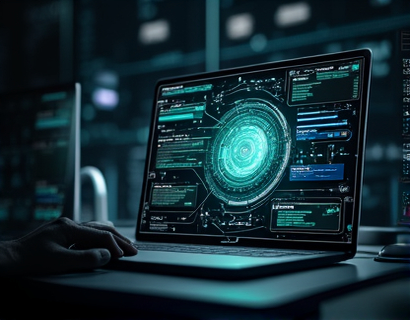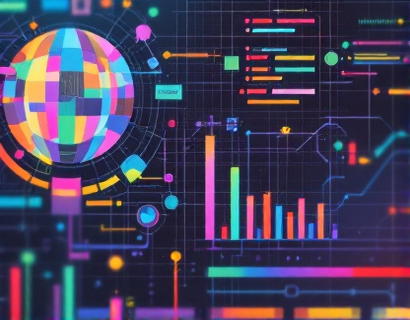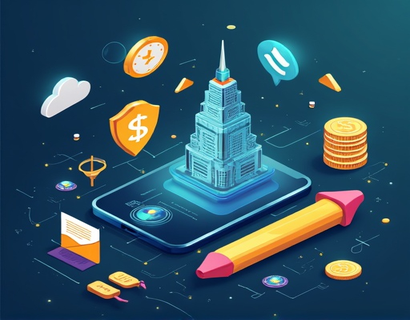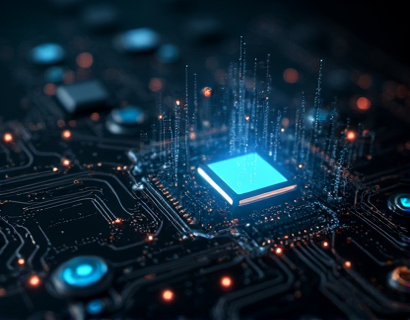Unleashing Next-Gen Digital Transformation: The Synergy of Crypto and AI
The intersection of cryptocurrency and artificial intelligence (AI) is giving birth to a new era of digital transformation, one that promises to redefine app ecosystems and elevate user engagement to unprecedented levels. This fusion of technologies is not just an incremental advancement but a revolutionary shift that is reshaping the very fabric of how we interact with digital solutions. As we delve into this topic, it's essential to understand the foundational elements that make this synergy possible and the profound impact it has on various sectors.
The Foundations of Cryptocurrency and AI
Cryptocurrency, since its inception with Bitcoin in 2009, has evolved from a niche digital currency to a robust ecosystem encompassing various assets, smart contracts, and decentralized applications (dApps). At its core, cryptocurrency leverages blockchain technology, a distributed ledger that ensures transparency, security, and immutability. This technology underpins the trustless and decentralized nature of cryptocurrencies, eliminating the need for intermediaries and central authorities.
Artificial intelligence, on the other hand, refers to the simulation of human intelligence processes by machines, particularly computer systems. These processes include learning (the acquisition of information and rules for using it), reasoning (using rules to reach approximate or definite conclusions), and self-correction. AI encompasses a range of technologies, including machine learning, natural language processing, and computer vision, which enable machines to perform tasks that traditionally required human intervention.
The convergence of these two technologies is not coincidental. The decentralized and secure nature of blockchain provides an ideal environment for AI models to operate in a trustless and transparent manner. Conversely, AI's ability to process and analyze vast amounts of data can enhance the functionality and security of blockchain-based systems. This symbiotic relationship is driving innovation across multiple domains, from finance and healthcare to supply chain and entertainment.
Revolutionizing App Ecosystems
The integration of cryptocurrency and AI is fundamentally transforming app ecosystems. Traditional app ecosystems are centralized, with platforms like Apple App Store and Google Play serving as gatekeepers. These platforms control the distribution, monetization, and updates of applications, often leading to biases and limitations. The emergence of decentralized app ecosystems, powered by blockchain and AI, is challenging this status quo.
Decentralized apps (dApps) operate on blockchain networks, allowing for greater autonomy and control for users and developers. AI enhances these dApps by providing intelligent functionalities, such as personalized user experiences, predictive analytics, and automated decision-making. For instance, a decentralized social media platform can use AI to curate content based on user preferences while ensuring data privacy and security through blockchain.
The benefits of this synergy are manifold. Decentralized ecosystems reduce the risk of single points of failure, enhance data ownership, and promote fair monetization models. AI-driven insights can optimize resource allocation, improve user engagement, and foster innovation. Together, these technologies are paving the way for a more inclusive, transparent, and efficient digital landscape.
Enhancing User Engagement through AI and Crypto
User engagement is a critical factor in the success of any digital platform. The combination of AI and cryptocurrency is revolutionizing how apps engage with their users. AI algorithms can analyze user behavior, preferences, and interactions to create highly personalized experiences. This personalization not only increases user satisfaction but also boosts retention rates and overall engagement.
Cryptocurrency adds another layer of engagement through tokenization. Tokens can be used to reward users for their contributions, such as creating content, participating in governance, or completing tasks. This gamification of user interactions incentivizes active participation and fosters a sense of community. For example, a decentralized gaming platform can use tokens to reward players for achieving milestones, thereby enhancing their motivation and loyalty to the platform.
Moreover, the transparency and security provided by blockchain ensure that user data and transactions are tamper-proof. This trust is crucial for building long-term relationships between users and platforms. AI can further enhance this trust by detecting and preventing fraudulent activities, ensuring a safe and fair environment for all participants.
Driving Innovation in App Development
The merge of AI and cryptocurrency is not only transforming existing app ecosystems but also driving the development of entirely new types of applications. Smart contracts, self-sovereign identity, and decentralized finance (DeFi) are just a few examples of innovative solutions emerging from this synergy.
Smart contracts are self-executing contracts with the terms of the agreement directly written into code. They automate and enforce contractual obligations without the need for intermediaries. When combined with AI, smart contracts can become even more intelligent, adapting to changing conditions and optimizing outcomes. For instance, an AI-driven smart contract in supply chain management can predict and mitigate disruptions by analyzing real-time data and adjusting logistics accordingly.
Self-sovereign identity (SSI) is another groundbreaking concept that leverages blockchain and AI. SSI allows individuals to own and control their digital identities, providing a secure and privacy-preserving way to authenticate and verify identities across different platforms. AI can enhance SSI by analyzing behavioral patterns and biometric data to create robust and dynamic identity verification systems.
Decentralized finance (DeFi) is redefining traditional financial services by offering decentralized alternatives to lending, borrowing, trading, and more. AI plays a crucial role in DeFi by providing advanced analytics, risk assessment, and automated trading strategies. This combination not only democratizes access to financial services but also enhances efficiency and transparency.
Challenges and Considerations
While the potential of combining AI and cryptocurrency is immense, there are several challenges and considerations that need to be addressed. Scalability remains a significant issue for blockchain networks, as they struggle to handle high transaction volumes efficiently. AI models, particularly those requiring extensive training, can be resource-intensive, raising concerns about energy consumption and environmental impact.
Regulatory uncertainty is another hurdle. The decentralized and borderless nature of blockchain and cryptocurrency poses challenges for regulators aiming to ensure compliance and protect consumers. Striking a balance between innovation and regulation is crucial to foster a healthy ecosystem. Additionally, ensuring the security and privacy of user data in AI-driven applications is paramount, as any breach can undermine trust and adoption.
Despite these challenges, the ongoing research and development in both fields are rapidly addressing these issues. Innovations in blockchain scalability, such as layer 2 solutions and sharding, are making blockchain more efficient. Advances in AI, particularly in areas like federated learning and edge computing, are reducing the computational and energy requirements of AI models.
Future Prospects
The future of the AI and cryptocurrency convergence is bright, with numerous exciting developments on the horizon. One area of focus is the integration of AI with other emerging technologies, such as the Internet of Things (IoT) and 5G networks. This integration can lead to smarter, more interconnected devices and systems that leverage the strengths of both AI and blockchain.
Another promising direction is the development of AI-powered blockchain governance models. These models can use AI to analyze network data, predict potential issues, and propose optimal solutions for maintaining the health and security of the blockchain. This proactive approach can enhance the resilience and reliability of decentralized systems.
Furthermore, the rise of decentralized autonomous organizations (DAOs) is set to transform how communities and organizations operate. DAOs combine the decentralized nature of blockchain with AI-driven decision-making, enabling autonomous and transparent governance. This can revolutionize sectors such as non-profits, corporations, and even governments, promoting more democratic and efficient decision-making processes.
In conclusion, the synergy between cryptocurrency and AI is unlocking new levels of digital transformation, redefining app ecosystems, and driving unprecedented growth and user engagement. As these technologies continue to evolve and mature, their impact will only become more profound, shaping the future of the digital landscape in ways we are only beginning to imagine.










































